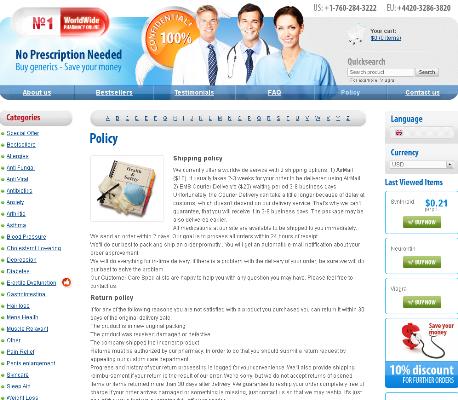| Royal City Drugs |
To Visit Online Pharmacy Click HERE ↓
Zocor for Heart Disease Prevention
Understanding How Zocor Works in the Body
Inside your body, cholesterol travels in the bloodstream, and too much of it can silently build up in your arteries. Zocor, a commonly prescribed statin, specifically targets the liver, where most cholesterol is made. By blocking a key enzyme, HMG-CoA reductase, Zocor effectively lowers LDL cholesterol levels.
This process doesn’t just improve lab results—it actively helps reduce the formation of artery-clogging plaques. Over time, this translates into healthier blood vessels and a lower risk of dangerous heart events.
| Action | Result in the Body |
|---|---|
| Blocks HMG-CoA reductase | Reduces LDL cholesterol |
| Lowers artery buildup | Supports heart health |
Zocor’s Role in Reducing Heart Disease Risk

For many patients at risk of heart disease, zocor plays a vital part in preventive care. By lowering levels of LDL (bad) cholesterol, this medication helps slow the buildup of plaque in arteries, which can greatly reduce the chances of dangerous blockages. Research shows that maintaining healthy cholesterol levels is crucial for preventing heart attacks and strokes, making management with zocor especially important.
The effectiveness of zocor is rooted in its ability to target cholesterol production at its source—the liver. With daily use, patients often see substantial improvements in their lipid profiles, resulting in better long-term cardiovascular health. This proactive approach can be especially important for those with a family history of heart disease, who may be more genetically prone to high cholesterol.
When used alongside doctor-recommended lifestyle changes, zocor can create a powerful defense against the silent progression of atherosclerosis. By minimizing risk factors early on, patients are more likely to enjoy a healthy, active future without the threat of major cardiac events looming.
Who Should Consider Taking Zocor
For people with high cholesterol levels, zocor can be a crucial tool in lowering their risk of heart disease. Often, those with a family history of cardiovascular issues or conditions like diabetes are recommended this medication as part of a broader prevention strategy. Sometimes, individuals who haven’t responded well to dietary changes or exercise alone might also benefit from adding zocor to their treatment plan.
Doctors carefully assess each patient’s health background before prescribing zocor. Age, other medications, and existing health problems are always considered. This helps ensure the benefits outweigh any possible risks.
Even if you don’t have symptoms, zocor may be suggested if your cholesterol numbers and risk factors warrant it. Managing heart health proactively can make a significant difference in long-term outcomes.
Potential Side Effects and Safety Concerns

Like all medications, Zocor can cause side effects, though not everyone experiences them. Common issues include muscle aches or weakness, which should be reported to a doctor, as well as digestive problems or headaches. Rare but serious concerns, such as liver problems or severe muscle damage, require immediate medical attention. It's important to have regular check-ups and blood tests while on Zocor to monitor for any changes. By staying informed, individuals can minimize risks and maximize the benefits of their treatment.
How Zocor Compares to Other Statins
When choosing a statin, patients and healthcare providers often weigh factors like potency, side effect profile, and drug interactions. Zocor (simvastatin) stands out for its ability to significantly lower LDL (“bad”) cholesterol at moderate doses, striking a balance between effectiveness and tolerability. While newer statins such as atorvastatin and rosuvastatin may offer more potent LDL reduction at higher doses, Zocor remains a popular choice for those who require milder cholesterol management or may be more prone to side effects.
Convenience also plays a role in decision-making. Most statins, including Zocor, are taken once daily, but individual responses and metabolic differences can affect outcomes. While some alternatives may be better for patients with complex medical needs, Zocor’s long-standing track record and affordability continue to make it a trusted option for many.
| Statin | LDL Reduction | Typical Dose | Common Side Effects |
|---|---|---|---|
| Zocor (Simvastatin) | 30-45% | 20-40 mg | Muscle pain, digestive issues |
| Atorvastatin | 40-60% | 10-40 mg | Muscle pain, liver enzyme changes |
| Rosuvastatin | 45-63% | 5-20 mg | Muscle aches, headache |
Lifestyle Tips to Boost Zocor’s Effectiveness
Imagine taking a daily walk not just for fresh air, but to help your medication work better. Regular physical activity can enhance the cholesterol-lowering effects of Zocor, making those heart-health benefits even stronger. Small changes—like choosing stairs over elevators or adding a brisk walk after lunch—add up in meaningful ways.
Diet also plays a crucial role. Consuming more fiber-rich foods like oats, beans, and fresh vegetables helps support healthy cholesterol levels. Limiting saturated fats from red meats and processed foods not only complements Zocor’s action but also reduces overall heart disease risk.
Staying consistent with both your medication and healthy habits is vital. Set reminders for your daily dose, and schedule meals and exercise at regular times to establish a routine that supports your well-being.
Lastly, don’t underestimate the power of managing stress. Activities like meditation, yoga, or even regular social time with friends can help maintain healthy blood pressure and support your heart’s health overall.






Email Us
Fill out all the fields below and press submit, a rep will contact you as soon as possible.

